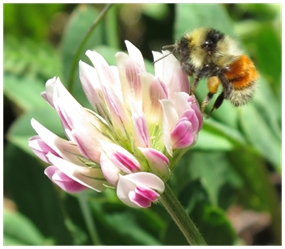Criticism mismatched: Response to de Keyzer et al. 2016
DOI:
https://doi.org/10.26786/1920-7603(2016)9Abstract
In a recent paper, we reported on the evolution of shorter tongues in two alpine bumble bee species in response to climate-induced flower deficits. De Keyzer et al. concede that tongue lengths have decreased but criticize the level of support for our claims. Here, we address the alternative mechanisms they proposed, highlight evidence presented in the supplementary material, and elaborate on the support for our claims in the literature. De Keyzer et al.’s criticisms reflect concerns about the misrepresentation of our work in the popular press. To clarify, we do not imply that evolutionary rescue is necessarily a prudent conservation strategy; we illustrate that remote bumble bee populations buffered from other environmental stressors have undergone an adaptive evolutionary response to dwindling resources under climate change.

Downloads
Published
How to Cite
Issue
Section
License
Copyright (c) 2016 Nicole Miller-Struttmann, Jennifer C. Geib, Candace Galen

This work is licensed under a Creative Commons Attribution 4.0 International License.











